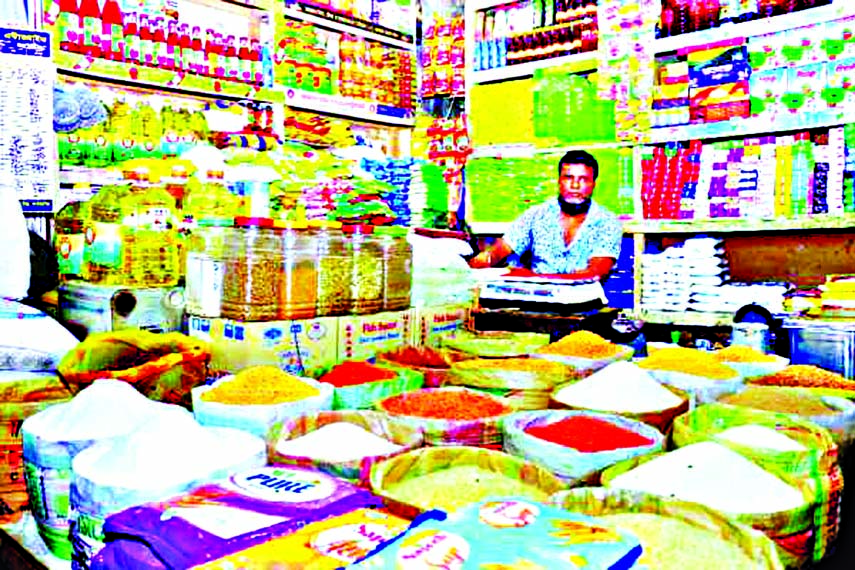
Kazi Zahidul Hasan :
Many families are facing it hard to cope with the soaring cost of living due to unchecked price hike of basic food items and services.
Inflation in Bangladesh too rose to 5.57 per cent in last month driven by the higher prices of food, according to a government data.
According to Bangladesh Bureau of Statistics (BBS), food inflation, which is more important in developing countries like Bangladesh, where a large amount of income are spent on food, increased to 5.56 per cent in October from 5.10 per cent in September.
“The higher fuel prices of basic commodities and services have made the life hard,” Prof Shamsul Islam, Adviser of Consumers’ Association of Bangladesh (CAB) told The New Nation yesterday.
He said basic food items’ price increased in the recent months with rice price hitting record high as traders manipulated in absence of proper market monitoring coupled with poor yields of food grains in the country.
“The price of food, clothing, footwear, household equipment, maintenance, transport, utility services and education have all gone up putting huge strain on family life,” said Prof Shamsul Islam, adding, “The price has put pressures on families and would not ease much in the coming months unless the government intervenes.”
He warned that prices of basic commodities are likely to climb even higher on the back of electricity tariff hike.
“If the government readjusts the domestic fuel prices in line with international markets, the prices of
commodities and services may not go up. The government’s policy has ultimately led the families to suffer,” he opined.
The cost of living in Dhaka has risen 71 per cent over the period 2009-2016, according to a CAB data.
CAB will release the latest data of cost of living in the first week of January 2017.
“Prices of food items including rice have increased significantly in the recent times caused by supply chain disruptions and floods,” Dr Mirza M Azizul Islam told The New Nation.
He said the effect of supply chain disruption still exists, pushing the country’s inflation marginally up.
“Domestic fuel price is still high and households face higher gas and electricity bills. Low income groups of people are quizzing their much-needed expenditure on food and healthcare leaving a bad impact on their living standard,” said Mirza Aziz.
“At a time when families are feeling the pinch of the rising cost of living with higher fuel and gas prices- the rise in electricity bills is yet another slap in the face of hard working families living in Dhaka,” Monir Hossain, a Senior Executive of a corporate group, told The New Nation yesterday.
He said, “We’re really under huge pressure at the moment. We see cost of living continuing to rise. Life is struggling and don’t seem to be getting respite on anything at the moment.”

